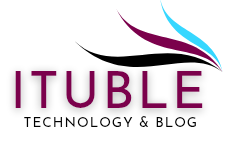Exploring the Value of an Information Technology PhD Business School EJMR Perspective
Pursuing an advanced degree in information systems or IT management is increasingly relevant in today’s tech-driven world. Through the lens of the information technology PhD business school EJMR discussions, we gain a unique understanding of how such programs are perceived, what they offer, and how they can shape the future careers of aspiring academics and tech leaders.
This article explores the academic and practical significance of pursuing an Information Technology PhD in a business school setting, incorporating real discussions and insights from forums like EJMR (Economics Job Market Rumors) where prospective and current PhD students often share experiences.
The Intersection of IT and Business in Doctoral Education
The fusion of business strategy and information technology has created an emerging demand for specialists who can lead technological innovation while understanding market dynamics. Business schools now offer PhD programs specifically tailored for this blend.
Programs under the information technology PhD business school EJMR topic often focus on strategic IT management, digital transformation, information systems modeling, and the economic implications of emerging tech. These interdisciplinary studies combine theoretical models with practical applications to prepare students for both academic and industry roles.
Research-Focused Curriculum
Most PhD programs feature intensive coursework in quantitative analysis, econometrics, organizational theory, and systems design. The aim is to equip students with tools to conduct high-impact research that contributes to both scholarly literature and business practice.
Why Choose a Business School for Your IT PhD
While computer science departments may offer traditional paths in software engineering or data systems, business schools offer a broader context. Students explore how technology can solve real-world business problems, impact policy, and drive organizational growth.
EJMR forum threads reveal a strong interest in business school PhD programs from candidates with tech industry backgrounds. They often seek to blend their technical skills with business acumen, aiming to pivot into academic roles or strategic leadership positions.
Key Benefits:
- Access to interdisciplinary research networks
- Strong funding opportunities and teaching assistantships
- Emphasis on publishing in high-impact journals
- Guidance from faculty with both academic and corporate experience
Understanding EJMR’s Role in PhD Decision-Making
EJMR (Economics Job Market Rumors) is more than just a discussion board; it functions as a peer-driven information hub for prospective PhD students, especially in economics, business, and adjacent fields like information systems.
When researching information technology PhD business school EJMR threads, prospective students can find valuable insights about program rankings, faculty reputation, placement history, and work-life balance. Despite occasional noise or off-topic discussions, the platform offers candid, real-world advice often missing from official program brochures.
Popular Topics on EJMR:
- Which schools have the best IT or IS faculty?
- What journals matter most for IT PhD candidates?
- Are placements stronger from business schools or CS departments?
- How demanding is the workload in IS/IT PhD tracks?
Career Paths After Earning an Information Technology PhD
Graduates of these programs pursue a wide range of careers. Some enter academia, becoming tenure-track professors in information systems or management departments. Others transition into think tanks, policy research, or strategic tech leadership in the private sector.
The information technology PhD business school EJMR discussions often highlight successful placements in top institutions and consulting firms, underscoring the versatility of the degree.
Common Career Destinations:
- Academic research and teaching positions
- Senior roles in IT consulting or digital strategy
- Technology-focused policy research
- Executive positions in innovation and operations
Navigating Program Selection and Application
Choosing the right PhD program can be overwhelming. Applicants are advised to focus not just on rankings, but on advisor alignment, research interests, and departmental support.
EJMR discussions suggest shortlisting programs that offer active research labs in information systems and demonstrated placement success in either academic or industry roles. Funding packages, location, and collaborative opportunities should also be considered.
Application Tips:
- Highlight prior research or relevant industry experience
- Emphasize a clear fit with faculty interests
- Secure strong academic references
- Demonstrate long-term career goals in tech and business
FAQ
What is the focus of an Information Technology PhD in a business school?
It typically blends IT systems, data analytics, and organizational strategy to prepare graduates for academic or leadership roles.
Is EJMR a reliable source for PhD information?
While it’s informal and sometimes unmoderated, EJMR provides honest peer insights about program experiences, placements, and expectations.
What are the career outcomes of this PhD path?
Graduates often become professors, consultants, or tech strategists in both academia and the private sector.
How competitive are these programs?
Top programs are selective, valuing prior research, strong analytical skills, and a clear fit with faculty expertise.
Do these PhD programs offer funding?
Yes, most business schools offer full funding with stipends, particularly for strong applicants with a good research match.
Conclusion
The evolving relationship between technology and business demands experts who understand both disciplines at a deep level. The information technology PhD business school EJMR perspective offers a candid, student-centered look into this rigorous yet rewarding academic path.
By combining real-world data with theoretical foundations, students in these programs are shaping the future of innovation, policy, and organizational success. If you’re considering a doctoral degree that balances technology expertise with business impact, this unique path may be exactly what you’re looking for.







